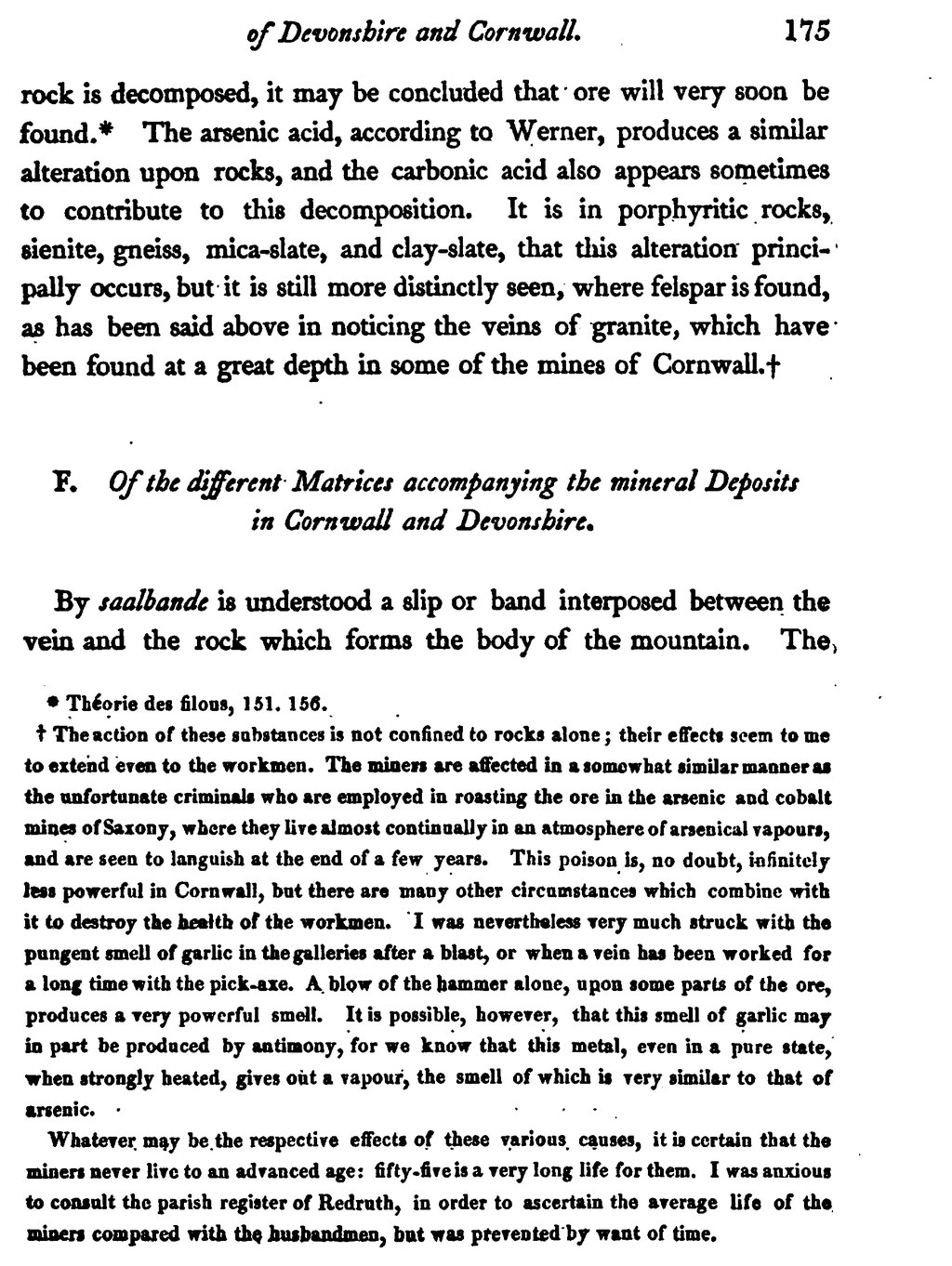rock is decomposed, it may be concluded that ore will very soon be found.[1] The arsenic acid, according to Werner, produces a similar alteration upon rocks, and the carbonic acid also appears sometimes to contribute to this decomposition. It is in porphyritic rocks, sienite, gneiss, mica-slate, and clay-slate, that this alteration principally occurs, but it is still more distinctly seen, where felspar is found, as has been said above in noticing the veins of granite, which have been found at a great depth in some of the mines of Cornwall.[2]
F. Of the different Matrices accompanying the mineral Deposits in Cornwall and Devonshire.
By saalbande is understood a slip or band interposed between the vein and the rock which forms the body of the mountain. The
- ↑ Théorie des filons, 151. 156.
- ↑
The action of these substances is not confined to rocks alone; their effects seem to me to extend even to the workmen. The miners are affected in somewhat similar manner as the unfortunate criminals who are employed in roasting the ore in the arsenic and cobalt mines of Saxony, where they live almost continually in an atmosphere of arsenical vapours, and are seen to languish at the end of a few years. This poison is, no doubt, infinitely less powerful in Cornwall, but there are many other circumstances which combine with it to destroy the health of the workmen. I was nevertheless very much struck with the pungent smell of garlic in the galleries after a blast, or when a vein has been worked for a long time with the pick-axe. A blow of the hammer alone, upon some parts of the ore, produces a very powerful smell. It is possible, however, that this smell of garlic may in part be produced by antimony, for we know that this metal, even in a pure state, when strongly heated, gives out a vapour, the smell of which is very similar to that of arsenic.
Whatever may be the respective effects of these various causes, it is certain that the miners never live to an advanced age: fifty-five is a very long life for them. I was anxious to consult the parish register of Redruth, in order to ascertain the average life of the miners compared with the husbandmen, but was prevented by want of time.
